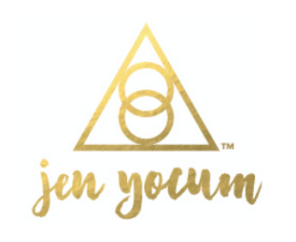Each New Year, many of us promise ourselves that this year will be different than the last; that this year we will lose the weight, find the partner, start exercising regularly, get that promotion, or reach whatever goal our heart is set on. By February, the vast majority of people have already given up on their hopes for change. If we’re being honest with ourselves, most of us want the same thing every single year; we gain momentum in January, lose it soon thereafter, maybe gain a little as the weather warms, lose track after a while, and repeat this same pattern over and over. After years of wanting the same thing and never quite getting it or keeping it, we begin to wonder what is wrong with us, why can’t we do it when others can, what do they have that we don’t?
When we turn our inner dialogue to how we feel we are inadequate, or how we are somehow “less than” by not achieving a goal or by not being who we want to be, we begin to practice a form of self-loathing. Our thoughts turn to what we lack and away from all that we do have. We focus on who we aren’t, rather than who we are. Functioning from this mindset only creates a self-fulfilling prophecy of never getting what we want, because we will never see ourselves for who we truly are. We will only see ourselves as a failure.
No matter what you did or did not accomplish for this year already, we can all practice more self-love. What is self-love, exactly? While it can take the stereotypical form of bubble baths and massages, what is even more important when it comes to self-love is the way that we speak to and about ourselves.
To assess how you currently speak to yourself about yourself, get out a journal or piece of paper and pen, and respond to the following prompts/questions:
- When I think about [insert goal I wanted but did not achieve yet], I feel:
- I believe this about myself when I think about not achieving that goal:
- Is there anything I wish were different about myself because I have not yet achieved that goal?
- When I think about not achieving this goal, does it make me feel like I cannot achieve other goals? If so, why? What do I feel I lack?
Now reflect upon your answers. Are your answers ones of hope, believing in yourself, and continuing to take those baby steps towards your goal? Or are they feelings of doubt, feeling bad about yourself, and/or uncertainty about being able to accomplish anything in your life? If they are more of the latter, or a mix of the two, you may need to practice more loving thoughts towards yourself.
Continue with your journal/writing exercise, and now ask yourself the following questions:
- When I think about the goal I did not yet achieve, was the goal set from a loving place? If I wanted to lose 10 pounds, why did I choose that goal? Does the weight actually matter or can I set a more loving goal for myself that is more about how I want to feel, rather than a number on the scale, such as feeling more energetic, being able to walk up two flights of stairs without getting winded, or being able to run a mile without stopping? If I want that promotion, is it about the duties, the prestige, or the money? What is it about that goal that really brings me alive and feels aligned with who I am and who I want to be? Is it truly about financial freedom, the desire to travel more, or gaining the respect of others, or do I want to achieve something specific in my career? If my goal is not aligned with how I want to feel or what I specifically want to achieve, I can rewrite a new goal that feels more in alignment.
- How can I take a small step towards that goal every day? If my goal is to exercise every day, but I can’t get to the gym, can I start with yoga or a walk around the block? If I want to learn a new language, can I start with just one new word every day? If I want to lose weight, can I start with just one healthier choice or meal a day? If I make just one small choice a day that is aligned with the way I want to feel and what I want to achieve, I can begin to focus on the successes.
- What practice can I put in place to help me remember to focus on what I’m doing well? How can I celebrate my “wins?” What can I do to show myself that I can make progress and do what I set out to do, even if it takes me longer than I’d like? When I focus on what I can accomplish, I build momentum towards achieving that goal.
When we shift our attention to how we want to feel, how we can take some action, and what we’re doing right in this process, we begin to practice more self-loving thoughts. We begin to believe we truly can make change in our lives, and our lives actually do change. Because when we change our thoughts about ourselves, we change ourselves. We begin to function from a place of belief, hope, and love for ourselves and our lives, and that’s the very best gift we can give ourselves this Valentine’s Day.
Note: This article was originally published in a local magazine for their February 2023 issue. For citation references, please contact Dr. Yocum at https://jenyocum.com/contact/


Recent Comments